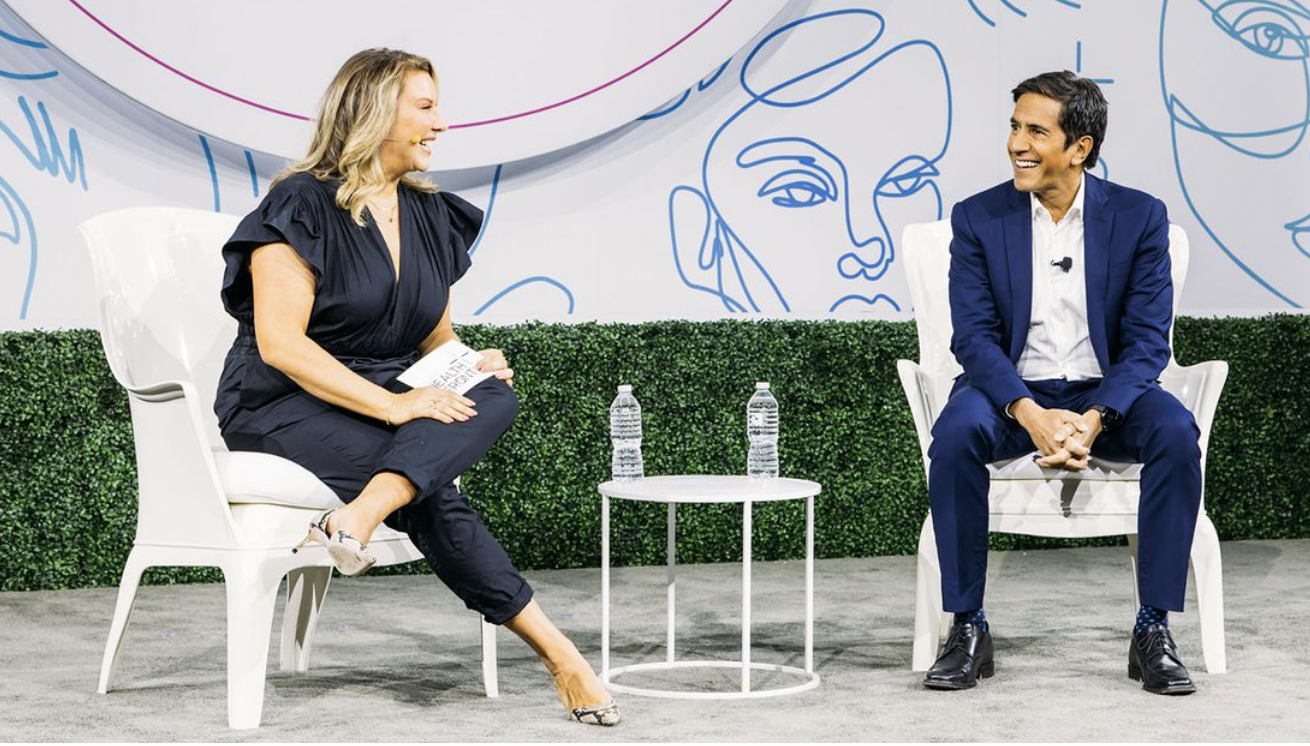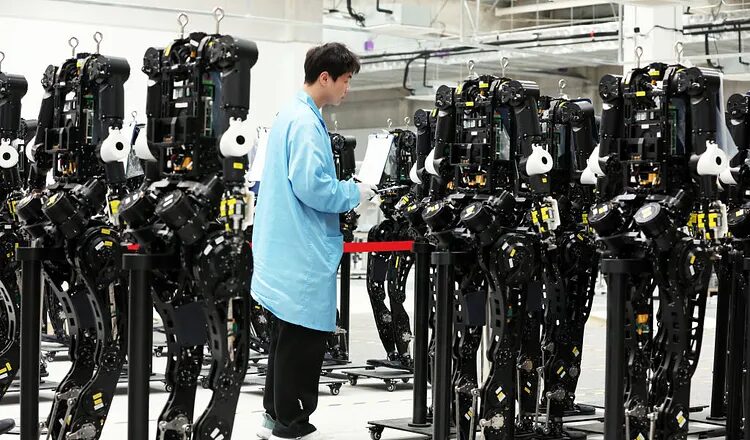What has the COVID-19 pandemic era taught us? What lessons still need to be learned?
Sanjay Gupta, MD, a neurosurgeon and CNN’s chief medical correspondent, recently addressed these and other issues in a fireside chat with the president of Publicis Health Media, Andrea Palmer, at the PHM HealthFront event in New York City. Everyday Health, which was among the event’s sponsors, was there; the following is an edited transcript of the interview with Dr. Gupta.
Andrea Palmer: What’s the most important lesson of the pandemic?
Sanjay Gupta: Perhaps one of the most important lessons to come out of this whole thing is the idea that bad information could be more damaging and can travel faster than the virus itself. That is something that we need to be really mindful of. You have to make sure there is plenty of good information out there, good knowledge that’s well presented [from sources] that people actually want to go to. Nobody wants to go to the CDC’s website, but you do want to go to Instagram and see what everyone else is telling you. And the message can’t be “Do this or you will get sick and die,” because nobody wants to hear that. As a doctor it’s tough to convey these messages, but it needs to be, “If you do this, you will lead a better life and you will be happier and healthier.”
AP: How has the pandemic changed care for people with chronic conditions?
SG: People did forgo a lot of medical treatment and screenings and checkups over the past couple of years. I think initially it was very understandable. And the idea of going into a hospital where sick people are in the middle of a pandemic when there was so much uncertainty, I think made sense. I’m a user of telehealth now, and it’s great. I can see patients and their family members in their homes. The thing that strikes me is that telehealth has actually existed for a long time. We’ve had the technology to do it. The reason we had to ramp it up was obviously because of the pandemic, but why hadn’t it happened already? It solved so many problems for people. Patients hate coming to the hospital. So the idea that you could do a lot of visits via telehealth always made sense. But it took a pandemic for it to actually become a reality. And I don’t know what the lesson is, but there is a lesson there. There’s amazing technologies that are being underutilized. It’s worth figuring out why, because I think telehealth will help solve a lot of problems in terms of access to care, especially when it comes to increasing equity in places that are hard to access. I hate that it took a pandemic for it to happen, but I think it’s a good thing going forward.
AP: What does the confusion and discourse around what’s true medical advice over the past two years tell us?
I think that’s a really fundamental question. Historically, if you go back a hundred years ago, even though the world was a much different place, the suspiciousness around public health advice existed back then as well. I spend a lot of time talking to people who are just automatically suspicious of anything that is coming from big institutions, be it medical institutions, big pharma, government — they’re just suspicious of that. A percentage of humans will always have this trait. Maybe it’s necessary to some extent. When you talk to people who have these suspicions about the vaccines, for example, a lot of times they don’t see themselves as creators of chaos as much as they see themselves as sort of Guardians of the Galaxy. And throughout our time here on earth, maybe those suspicious few will help prevent us from being in certain calamities as a civilization. So maybe it’s necessary to do. You modulate it to make sure that it doesn’t cause harm — so that a million people don’t die in this country. How do you install that trust in public health without taking away people’s right to be skeptical of things and ask more questions?
AP: On the topic of vaccines, how have science and medicine changed our response to the pandemic?
I do think the scientific achievements of this pandemic have been pretty remarkable. As much as we talk about the concerns about misinformation and things like that, what happened with the vaccines is a story that will be told in medical textbooks for generations to come. We had never done this before as a world. This was the fastest that we’d ever proven a vaccine; before, it took four years. I don’t think medical innovation will ever move as slowly as it did before these vaccines happened, because they had to. People’s backs were against the wall, and they had to do something that they’d never done before. And it worked — it might not have, you know. The thinking at least for many of the scientists I talked to was that it was unlikely that we’d have a vaccine within the first couple years. So that, that was an important lesson. And mRNA technology will I think be something that’s used for future viruses and also for other diseases.
AP: Switching gears to another area of science: One theme in your book Keep Sharp: Building a Better Brain at Any Age, is that many of our assumptions about the aging brain are wrong.
SG: I’m a brain surgeon. That’s what I do, and the brain is my first love. I’ve thought about the brain, how it changes and doesn’t change throughout our lifetime. The conventional wisdom that most of us have heard, and I certainly did, was that you kind of got what you got. But we now know that’s not the case. You can continue to grow your brain at any age. What’s remarkable about that is that the brain, unlike any other organ in the body, can actually reliably get stronger and sharper as we age. We think of wear and tear as a component of aging, which is understandable. And there is a lot of that. But the idea that the brain is different, that it actually gets sharper when you’re using it more, when you’re using different parts of it more often, I found really fascinating. The idea here in the United States is that you’re retired at age 65, you may be discarded from your professional life, and if you don’t have strong family connections, maybe you’re discarded from your personal life as well. Your brain is not counted on anymore. People aren’t looking to you for your judgment and your wisdom. You go to many countries around the world and that’s exactly flipped. And it’s not that the human physiology or brains are different [in other places]. It’s the expectations. Your biological age, your chronological age, is just one measure, but who you are is something that can be totally different. As an Indian immigrant, my immigrant experience culturally is very different. The reverence for people who are older I think leads to people being very, very engaged in society for a much longer time. Which is amazing.




